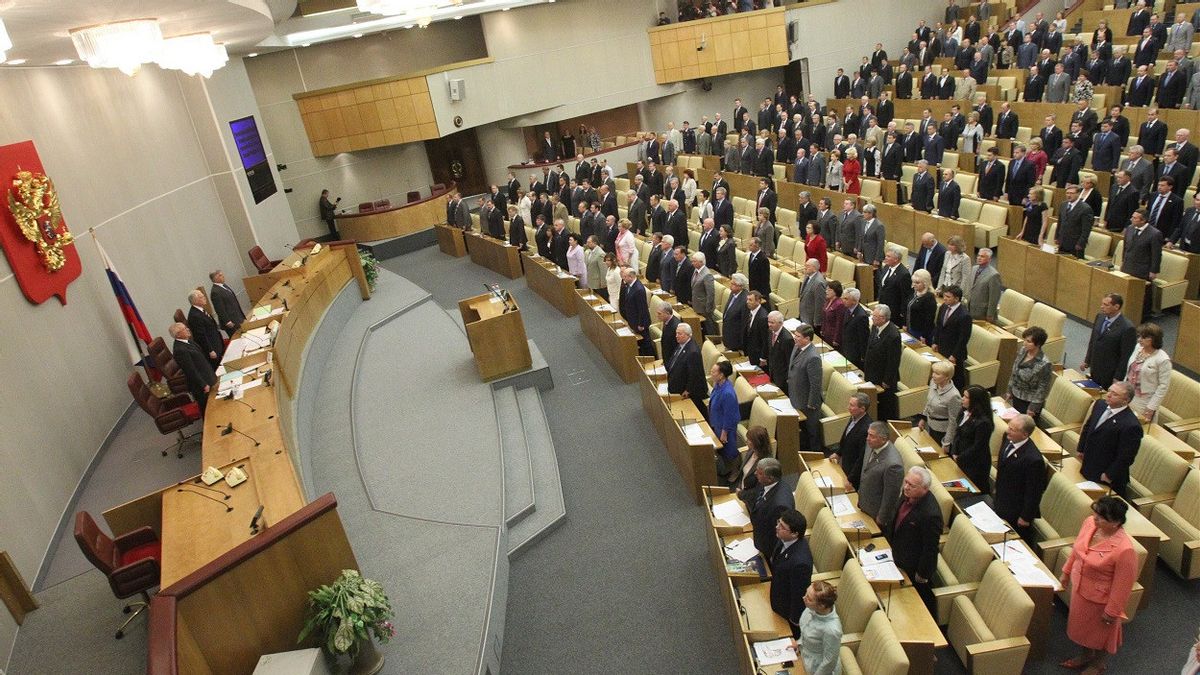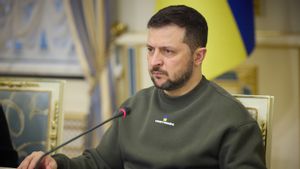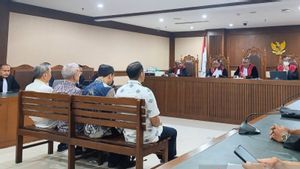JAKARTA - A Russian lawmaker said on Wednesday he is proposing amendments to a wartime censorship law that would increase the maximum sentence for discrediting soldiers from five to 15 years in prison, extending the reach of laws to protect Wagner's mercenary troops.
Moscow introduced sweeping censorship laws shortly after ordering tens of thousands of troops into Ukraine a year ago.
Discrediting the army is currently punishable by up to five years in prison. While spreading known false information about it is punishable by a prison sentence of 15 years.
Vyacheslav Volodin, chairman of the State Duma, the lower house of Russia's parliament, said on Wednesday his proposed amendments would strengthen the law and increase the sentence for both offenses to 15 years.
"This initiative will protect all those who are currently risking their lives to ensure the security of our country and citizens," Volodin, a close ally of President Putin, wrote on Telegram, launch Reuters March 2.
"The punishment for violators will be very severe," he continued.
The amendment proposal also calls for a fine of up to five million rubles (about $66,580), correctional or forced labor for up to five years, or imprisonment for up to 15 years.

The law will also expand, for the first time providing protection to Wagner mercenary forces fighting in Ukraine, as well as other voluntary military organizations.
Yevgeny Prigozhin, Wagner's founder, asked parliament in January to ban negative media reports about his men by changing the penal code, an idea Volodin was quick to say he supported.
It is known that Russian prosecutors have opened more than 5,800 cases against people who discredited the armed forces, says rights group OVD-Info.
Prigozhin, whose fighters have spearheaded the months-long advance for Russia to capture the town of Bakhmut in Ukraine's Donetsk region, praised the new amendments.
In a letter to Volodin published on Telegram, he wrote: "This amendment will allow us to defend the rights of individuals who defend the state".
But Prigozhin, who has repeatedly and publicly clashed with top Russian military brass, said the law should not apply to anyone criticizing military commanders, something he said was "necessary for the open and responsible fulfillment of their (commander's) responsibilities."
VOIR éGALEMENT:
Prigozhin publicly accused senior military commanders of "treason" last month, accusing them of deliberately starving his fighters out of personal animosity towards him.
The Defense Ministry denied there was a shortage of ammunition. Later, Prigozhin later said he got what he needed.
The plan is for the lower house of parliament to consider Volodin's proposed amendments on Thursday with the final vote scheduled for March 14.
The English, Chinese, Japanese, Arabic, and French versions are automatically generated by the AI. So there may still be inaccuracies in translating, please always see Indonesian as our main language. (system supported by DigitalSiber.id)


















